Keywords: violence; Penal Code; consequences; legislation; proposals
In this study it has been analised the concept of the new penal code adopted by the Parliament next year, the evolution of the legislation, the legal framework regarding prevention and punishment, and also a lot of interesting proposals have been made. The project of the new Penal Code proposes a simplification of the content of violence, meaning regrouping the acts of violence within in articles 180-182 of the current law, in the contents of only two articles (193 and 194). The distinguishing criterion between different forms of violent crime is, in this case, the nature of the consequences produced.
More...Diese Arbeit forscht die Vorzüge im Bereich der Berufsentwicklung der Ausbilder für höhere Erziehung. Die Verfassung- und Anerkennungsmethodologie einer Vermessensarbeit wird zusammen mit den Ergebnissen der Analyse der Fakultätsberufsnotwendigkeiten vorgestellt. Unsere Arbeit erlaubt die Identifizierung der Hauptziele, die die Lehrenverbesserung und die Verfassung eines Informationsprofils für die von Ausbildern sehr geschätzten Verbesserungsstrategien leiten. Wir analysierten die Optionen der Personen, die die Fragebogen antworteten, laut vielen Kriterien: dem Disziplinärbereich (Wissenschaften – Sozialwissenschaften), dem didaktischen Grad, der Erfahrung in diesem Bereich, dem Geschlecht, etc. Wir beabsichtigten, die Diagnosendimension unserer Arbeit zu schätzen.
More...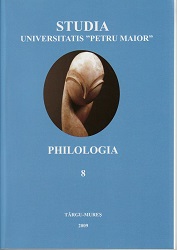
The paper debates on the concept of exile in post-war Eastern Europe, suggesting a phenomenological perspective and focusing on its symbolic, cultural and political significance. It is a preliminary discussion on the particularities of Monica Lovinescu and Virgil Ierunca’s literary and political criticism during Ceausescu’s regime.
More...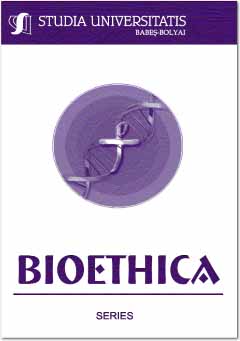
Keywords: Tuberculosis; medical issue; incidence; etiology.
Tuberculosis represents a important medical issue due to its incidence. Romania stands amongst the first places in Europe regarding Tb incidence and mortality. MDRTB is another important aspect regarding TB treatment. Despite the fact that the etiology has been known for over 100 years and that etiological treatment is available Tb still represent a medic problem.
More...The author hopes that Romania's NATO membership acceptance will oblige the government in Moldova "To get out of the political mud in which it has been for the last 10 years". The author says that "The Republic" will not be able to practice the "double game" - with the Western Europe and Russia.
More...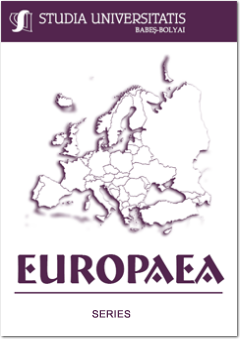
The foundations of this complex and comprehensive volume were laid back in 2006 by the three editors, Philip Vos Fellman, Yaneer Bar-Yam, Ali A. Minai and it was built with contributions of experts in a wide variety of disciplines, such as political science, economics, history, sociology, geography, psychology, mathematics, computer science, and physics, to name just a few. This diversity of their ellaborated perspectives stands from the beginning as a distinctive characteristic, distinguishing this volume from other approaches on similar topics, and consequently transforming it in a unique contribution. The analyses encompassed in this edited volume focus on stringent problematics of our time, from terrorism and battlefield warfare, to ethnic and regional violence; while at the same time they stand and illustrate an effort to make a significant contribution in combating terrorism, as well as ethnic and regional violence.
More...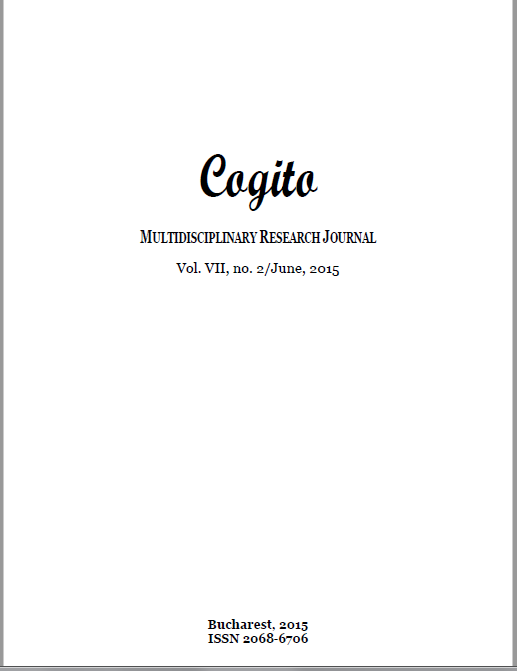
Keywords: translation; Dimitrie Cantemir; relevance theory; processing effort; cognitive effects;
The present paper is aimed at testing Virgil Cândea’s hypothesis concerning the fate of Dimitrie Cantemir’s most famous work, The History of the Othman Empire, first written in Latin and translated into English and hence into other vernaculars. A few years after he discovered the Latin original, Cândea stated that the English version was not a real translation, but “a sort of remake”, holding the translator responsible for a great deal of the “harsh criticism” received by the book. My tools for testing this hypothesis are drawn from relevance theory, formulated by Dan Sperber and Deirdre Wilson and adjusted to translation studies by Ernst-August Gutt. In section 1 I summarize the problem investigated, presenting the history of the text and Cândea’s arguments. Section 2 is reserved to the definition of the main concepts used in the analysis. In section 3, Cândea’s hypothesis is rejected and the analysis of a few examples illustrates how the quest for relevance drives translation techniques.
More...Keywords: socialist realism; Romanian literature; experimentalism; synchronization
Even if transition from the socialist realism to real literature was achieved, in the beginning, partially and ideologically filtered, libraries have managed to get works that will cause dramatic changes in the evolution of Romanian literature. The immediate consequences of these changes will be seen not only in professionalization of higher education, but also in the immediate synchronization of the techniques of creation, making again place, after a considerable interruption, to the experimental literature.
More...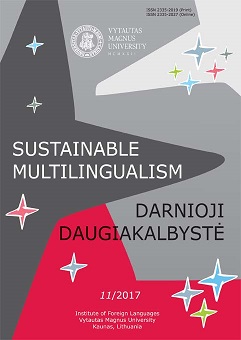
Keywords: humour; translation; TV series; script; incongruity; culture-specific;
The present study examines humour in the tenth season of the TV sitcom Friends and its translation from English into Lithuanian. With humour often believed to be culture-specific, humour translation presents a notorious issue in translation practice, as jocular content in the target language is often criticised for being poor and vague. Grounded in Raskin’s (1985) theory of verbal humour and adopting Schjoldager’s (2008) inventory of translation microstrategies, the article examines the components and mechanisms of humour in the source language and analyses the strategies applied to humour translation, focusing on whether the intended humorous effect is preserved in the target language. The article also seeks to establish to what extent humour as used in Friends is culture-dependent. The study was conducted at two levels. First, we briefly presented the essence of Raskin’s model of humour, which centres around the notions of script and incongruity, and later applied it to the selected series to identify and analyse the data in the source language. We then supplemented the findings with the identification of jokes in the target language and assessment of translation microstrategies employed in rendering humorous instances in Lithuanian. The findings of the study are believed to further the theoretical and practical domains of translation from English into Lithuanian in particular and, more broadly, contribute to the discussion on the culture-specific worldview.
More...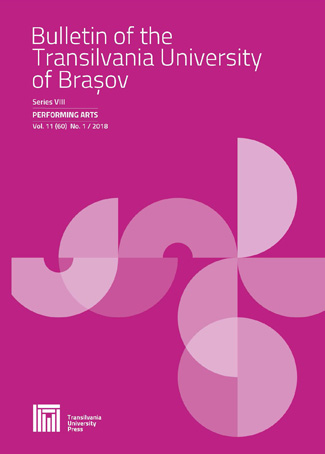
Keywords: concerts; traditions; folklore; documents; culture
This article explores the musical life of Braşov at the dawn of the 20th century, as it transpires from the thinking and activity of musician Gheorghe Dima.The bibliographical research relies on documents, which, beyond everyday thoughts and acts, also disclose a whole problematic related to the history of music, folkloric creation, aesthetics, composition and performance. With his organizing skills and his ever-fresh initiative, Gheorghe Dima found new opportunities for the development of the musical activity in Brasov, with the goal of cultivating music in Transylvania. This research relies on the representative documents hosted by: The Archives of the Museum of Romanian Culture in Şchei Neighborhood of Braşov, “Iacob Mureşianu” Memorial Home, the archives of “Gazeta Transilvaniei” Newspaper collection. Concert programmes and reviews of Braşov music ensembles are brought to light: The town orchestra, the Philharmonic Society, the musical reunions, the school choirs, the choir of “Saint Nicholas” Church, as well as of other cultural societies in Transylvania whose activity is documentarily attested.
More...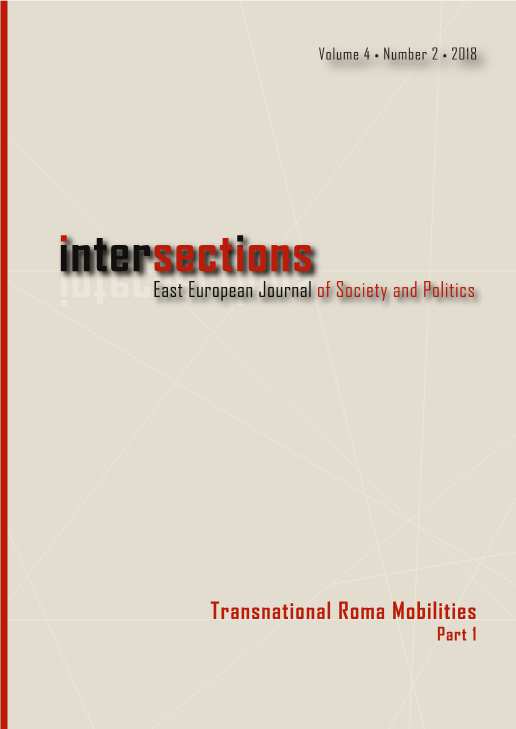
Keywords: autonomy of migration; social mobility; subversiveness; securitization; Roma women; nomadology
Since the institutionalisation of the ‘nomads camp’ as housing policy for the Roma in Italy, various securitising discourses have ambiguously incorporated the motifs of mobility and stasis to construct Roma as a highly mobile – hence potentially ubiquitous – threat, while deploring their perceived social and cultural immobility through the tropes of their unwillingness to ‘integrate’ or to become ‘civilised’. Against the backdrop of these securitising narratives surrounding Roma (im)mobility, the article will bring to the fore the lived experiences of movement of two Roma women currently living in Rome; as they try to navigate economic hardship, the (im)mobility and pressures imposed by states’ or local authorities’ regulations of their lives, and personal contingencies, they contest, side-track or submit to the regimes of (im)mobility imposed on them. Applying a transnational and intergenerational lens to their social mobility projects contributes to nuance the autonomy of migration thesis within mobility studies: while some of their moves do challenge the categories upon which state power is predicated, in other respects they submit to prescribed paths of social mobility.
More...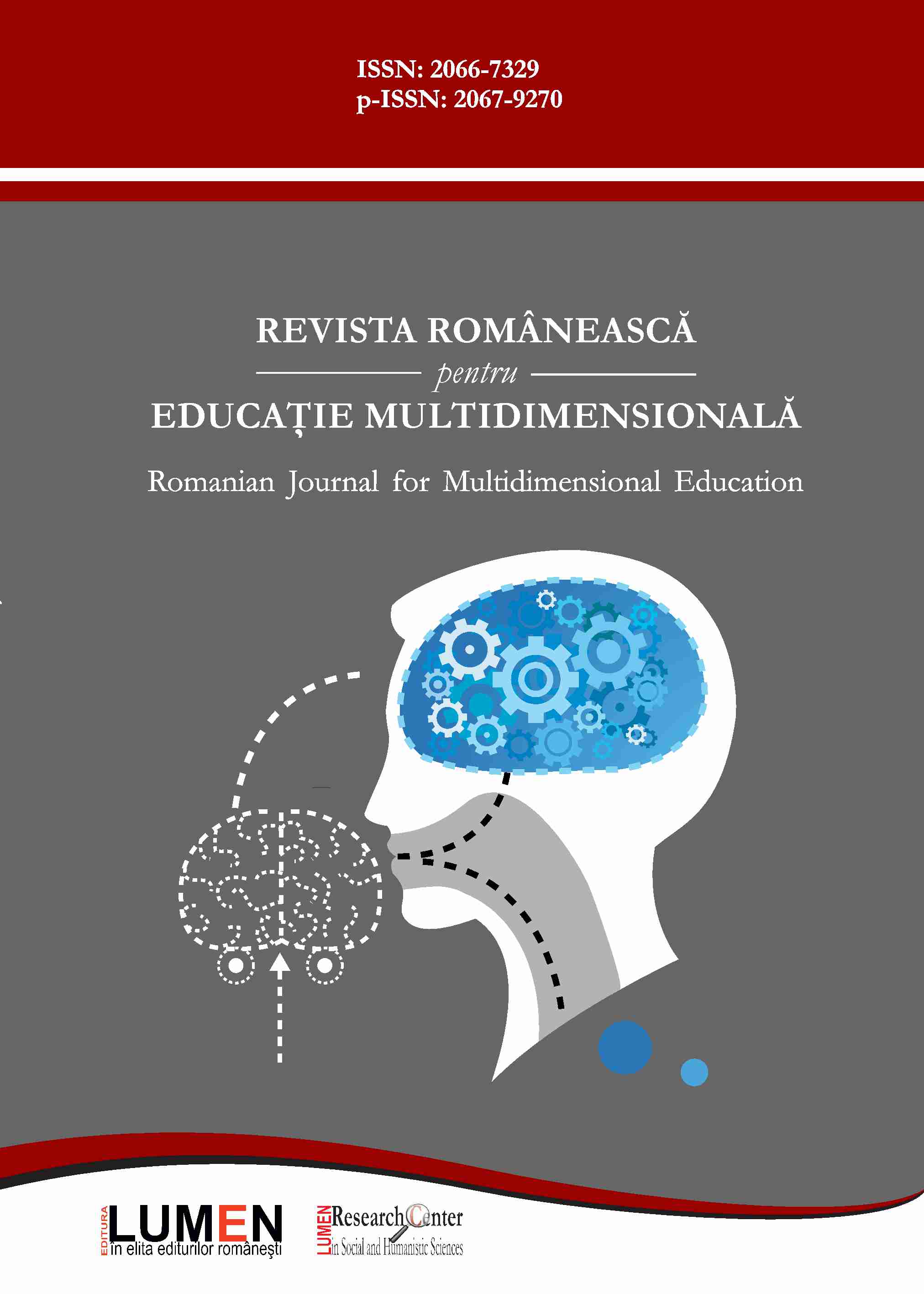
Keywords: discrimination; equal opportunities; interculturality; teachers perceptions and attitudes
In the light of extremely complex issues of the contemporary Romanian society, more and more social actors consider intercultural education to be an essential part of the actual education. As a whole, the Romanian society has gradually become, over the past few decades, increasingly aware of its own cultural diversity. Consequently, there are more people who consider that diversity is not a fatality, a curse of history, but an opportunity, a resource which should be used appropriately. Intercultural education is vital, firstly for the stability of the society and its increased chances to develop durably, as it teaches us how to cohabit, and secondly, because it promotes equality, respect and openness towards communicating with “others”.As a subsystem of society, school takes over and duplicates the socially validated practices which relate inclusively to the issues of interculturalism, and implicitly the issue of discrimination based on criteria represented by gender, ethnicity, religion, level of development, social, cultural and economic status etc. Numerous actors such as P. Bourdieu, J. C. Passeron, B. Bernstein considered that the education establishments play the role of cultural reproducers, namely they serve as action instruments in putting the requirements of society into practice. Although there are education policies which obviously promote a series of principles on equal chances, irrespective of social origins, gender, age, ethnicity, religion etc., in reality, education faces up, even nowadays, a series of segregationist and discriminatory practices. This may be - on the one hand - the effect of society’s general mentality that being different than the average of the population implicitly means negative labelling of the minority, and - on the other hand - it is about the inefficiency of the education system, especially schools, in connection with educating population, in the spirit of promoting the values of diversity and interculturalism, fighting discriminatory practices and attitudes.The paper aims to retrieve the primary and secondary teachers’ opinions concerning the forms of discrimination which are present in schools and classes, but also their attitudes related to such discriminatory practices and the proposed solutions for fighting and diminishing those undesirable behaviors.In addition, we intend to use this micro-research in order to determine teachers to adopt a reflective attitude concerning such sensitive issues of discriminatory practices existing in Romanian schools, by using syntagma like: “I am aware of how my comments or actions may impact different typologies of students”, “I manage to cope with biased or discriminatory tendencies on assessing students”, “I usually bring to my students’ attention that their comments are pejorative, unfavorable in terms of race, ethnicity, culture”, “I take responsibility in facilitating integration of students of other cultures, ethnicities, races, genders” etc.All those endeavors will result on identifying some examples of good education practices on fighting and preventing discrimination of any type in Romanian schools.
More...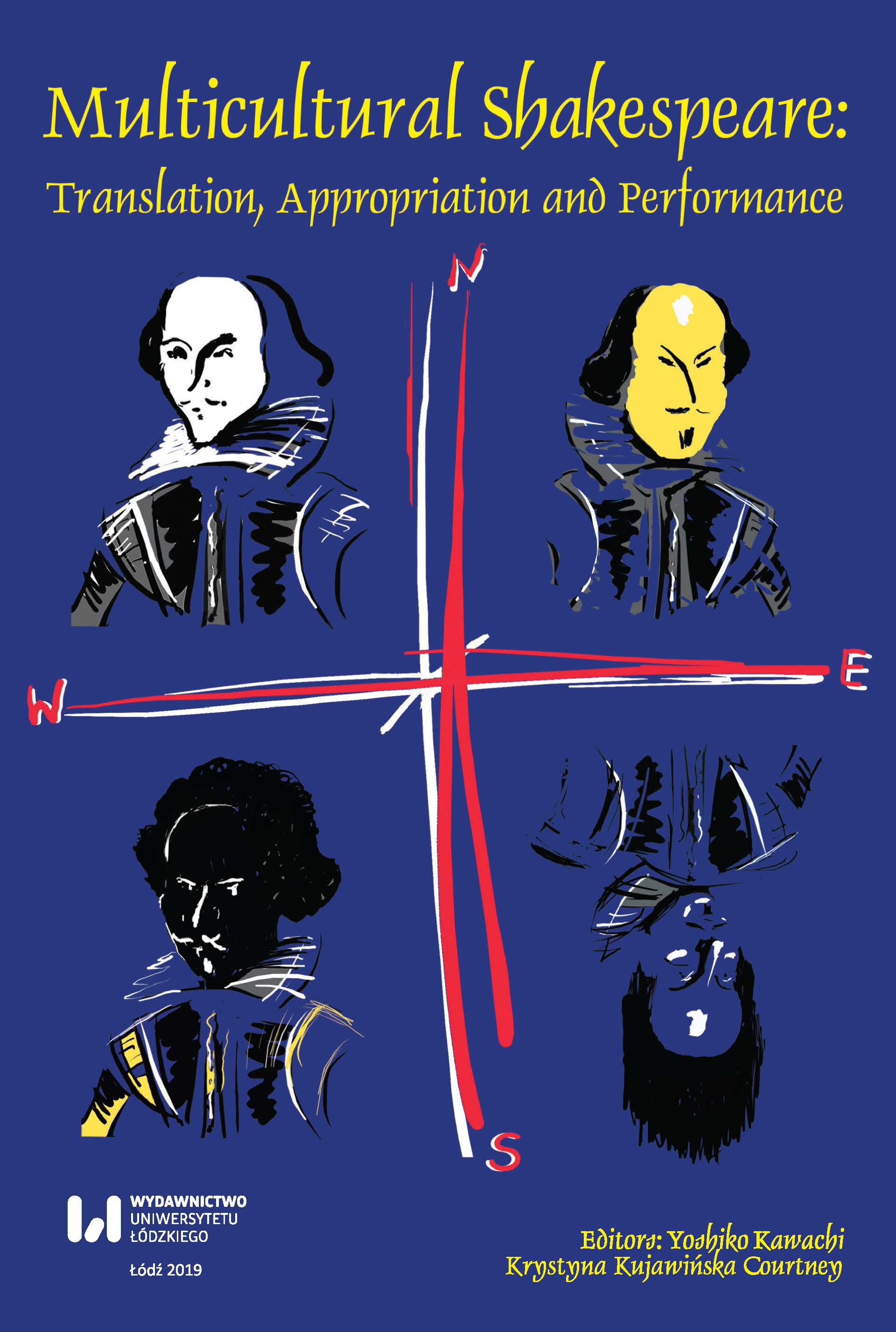
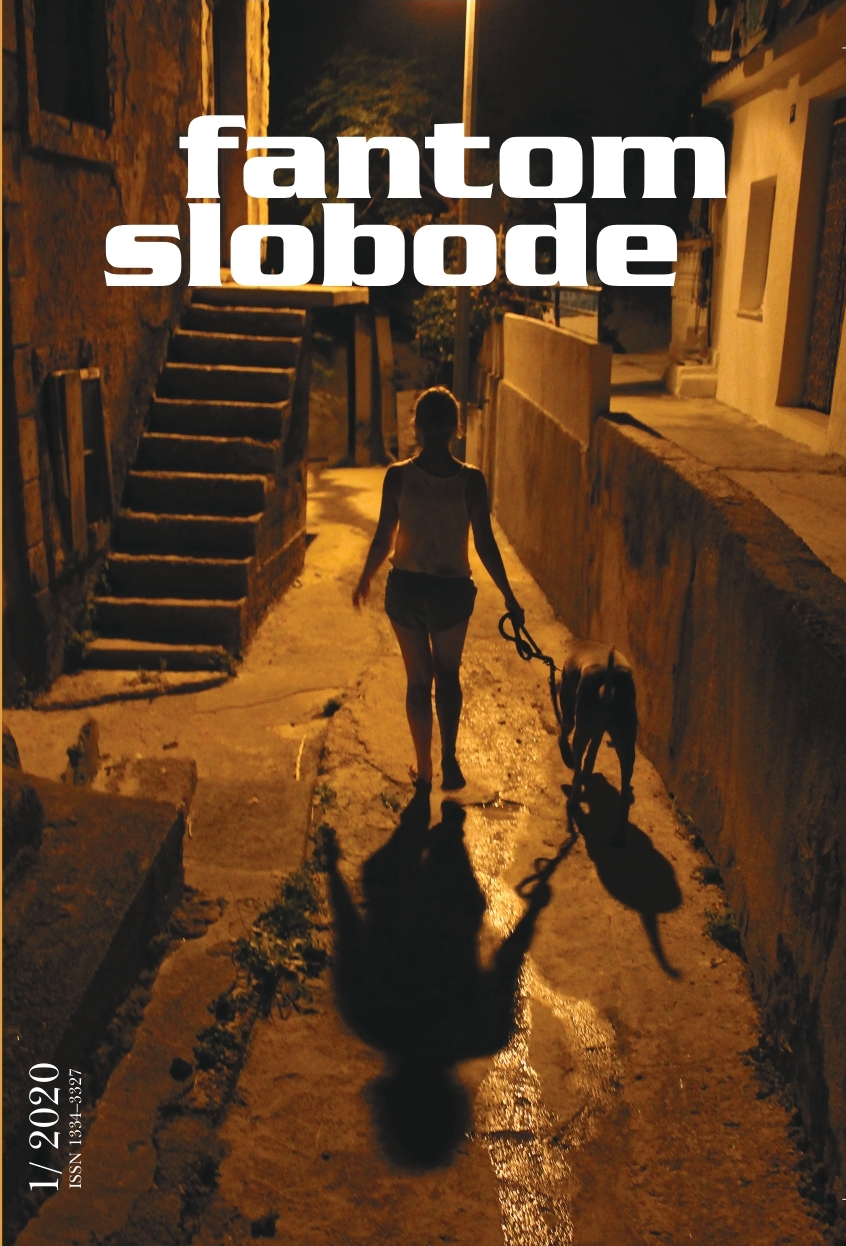
Keywords: Vanda Petanjek; Croatian literature; Poetry;
Poetry written by Vanda Petanjek: (Od)važnost iskaza.
More...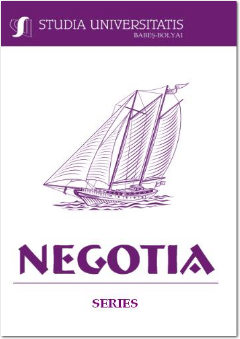
Keywords: rural tourism; sustainability; Mănăstireni; Cluj County; COVID-19;
The current restrictions imposed by the Covid-19 pandemic have a strong impact on all forms of tourism. Rural tourism holds certain advantages over alternative/classical forms, which reduce the risk of infection i.e. unpolluted air and tranquility, low population density, reduced human interaction, easy social distancing and smaller lodgings. This paper analyzes the rural tourism potential for a village situated in North-Western Transylvania (Romania): Mănăstireni. The data was captured by developing and distributing a questionnaire consisting of 34 question. The results indicate that, whilst the local infrastructure is deficient, respondents are generally satisfied or very happy with the rural tourism in the analyzed area. Among the most frequently quoted advantages were found to be tranquility, clean air, beauty of landscapes, and the hosts’ hospitality. These identified characteristics represent clear advantages that rural tourism holds over classical/ alternative forms (e.g. city breaks), especially in the current pandemic conditions.
More...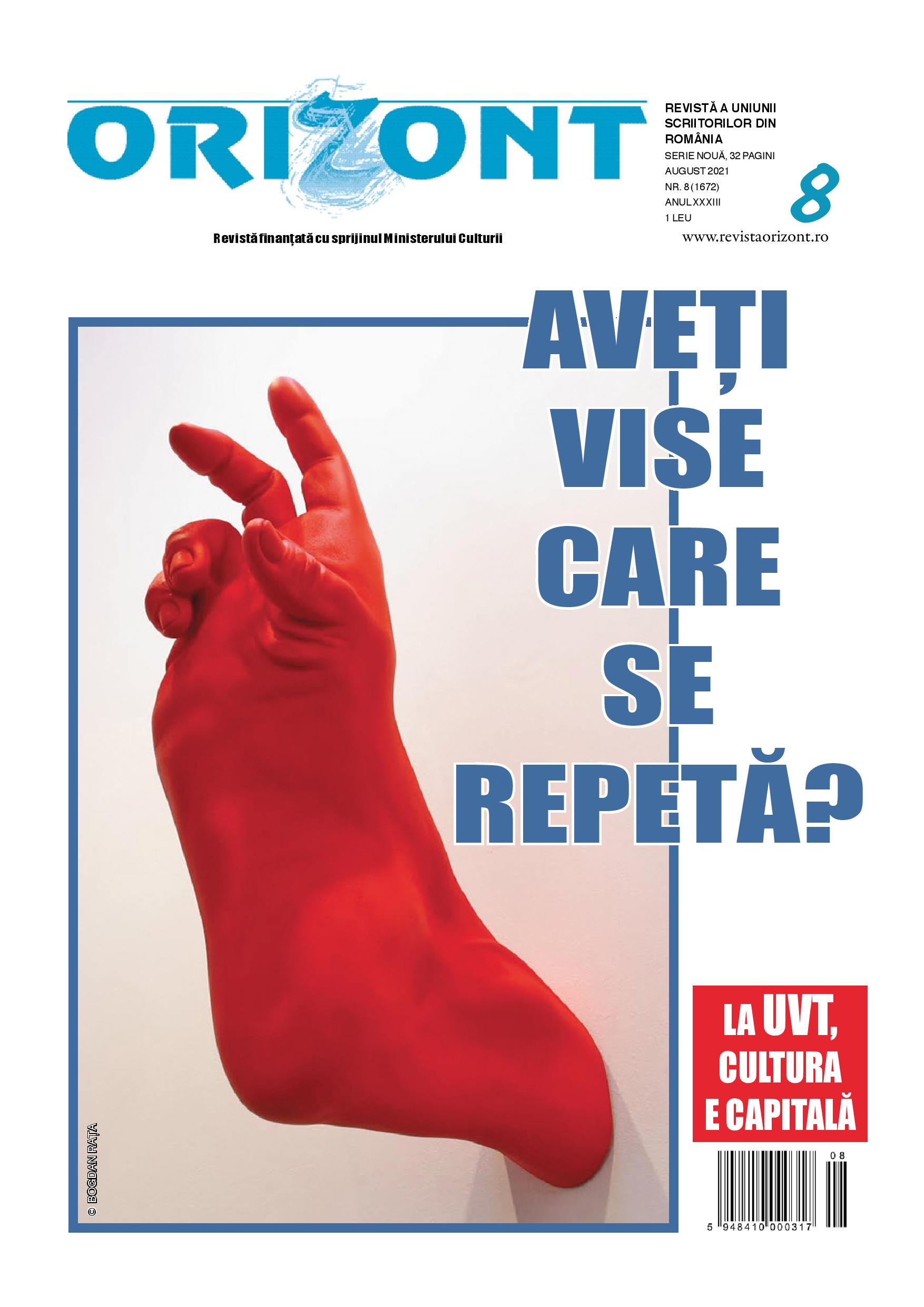
Keywords: Monica Pillat; Remus Georgescu;
More...